Search the Special Collections and Archives Portal
Search Results
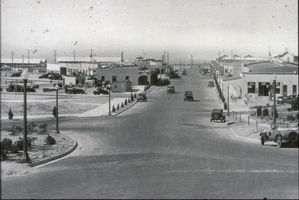
Slide of Nevada Highway, Boulder City, Nevada, May 6, 1932
Date
1932-05-06
Archival Collection
Description
Black and white image of the Nevada Highway in Boulder City, as seen from the Administration Building.
Image
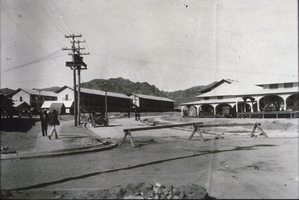
Slide of Cherry Street, Boulder City, Nevada, December 1, 1931
Date
1931-12-01
Archival Collection
Description
Black and white image of Cherry Street, as seen from the Nevada Highway in Boulder City. The Six Companies, Inc. dormitories and clubhouse are also visible.
Image
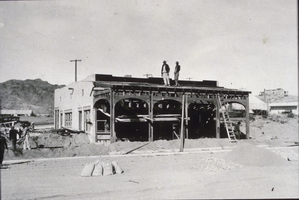
Slide of business building under construction, Boulder City, Nevada, December 1, 1931
Date
1931-12-01
Archival Collection
Description
Black and white image of a building under construction on lot 6, block 18 in Boulder City.
Image
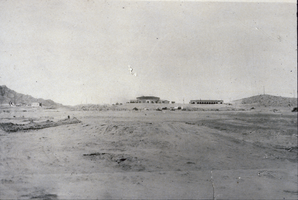
Slide of Escalante Plaza, Boulder City, Nevada, December 1, 1931
Date
1931-12-01
Archival Collection
Description
Black and white image of a view northward across Escalante Plaza from the intersection of California Avenue and Wyoming Street in Boulder City. Visible in the background are an Administration Building and government dormitories.
Image
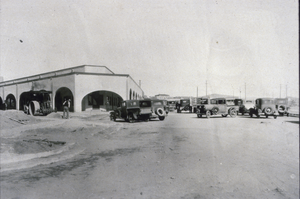
Slide of Nevada Highway, Boulder City, Nevada, December 1, 1931
Date
1931-12-01
Archival Collection
Description
Black and white image of the Nevada Highway in Boulder City. The Six Companies, Inc. clubhouse, commissary and executives lodge are visible.
Image
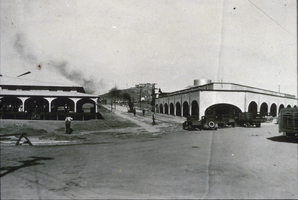
Slide of Nevada Highway, Boulder City, Nevada, December 1, 1931
Date
1931-12-01
Archival Collection
Description
Black and white image showing a view north of Birch Street, as seen from the Nevada Highway in Boulder City. The Six Companies, Inc. clubhouse, commissary and executives lodge are visible.
Image
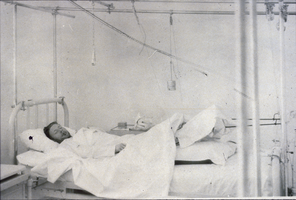
Slide of a patient in a hospital ward, Boulder City, Nevada, December 1, 1931
Date
1931-12-01
Archival Collection
Description
The black and white image of a patient in a ward of the Six Companies, Inc. hospital in Boulder City.
Image
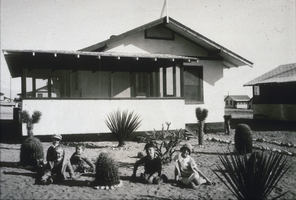
Slide of a cottage built by Six Companies, Boulder City, Nevada, January 1, 1932
Date
1932-01-01
Archival Collection
Description
Black and white image of children sitting in the yard of a cottage (similar to 450 others in the area) built by Six Companies, Inc. for their married employees in Boulder City. Many residents planted cactus and other shrubs indigenous to the area in their yards.
Image
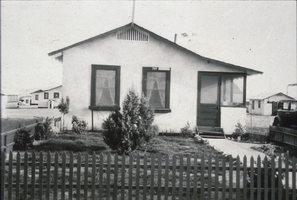
Slide of a cottage built by Six Companies, Boulder City, Nevada, May 7, 1932
Date
1932-05-07
Archival Collection
Description
Black and white image of a cottage (similar to 450 others in the area) built by Six Companies, Inc. for their married employees in Boulder City. Many residents planted cactus and other shrubs indigenous to the area in their lawns.
Image
Pagination
Refine my results
Content Type
Creator or Contributor
Subject
Archival Collection
Digital Project
Resource Type
Year
Material Type
Place
Language
Records Classification

